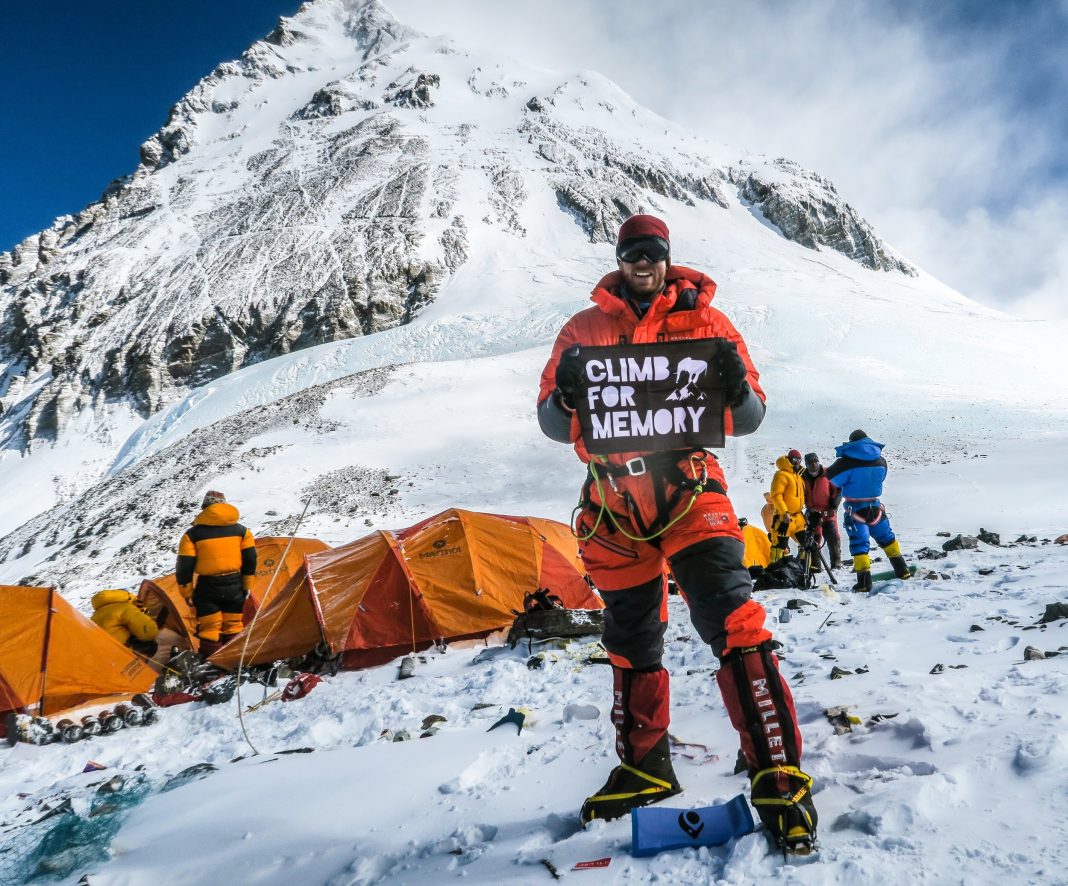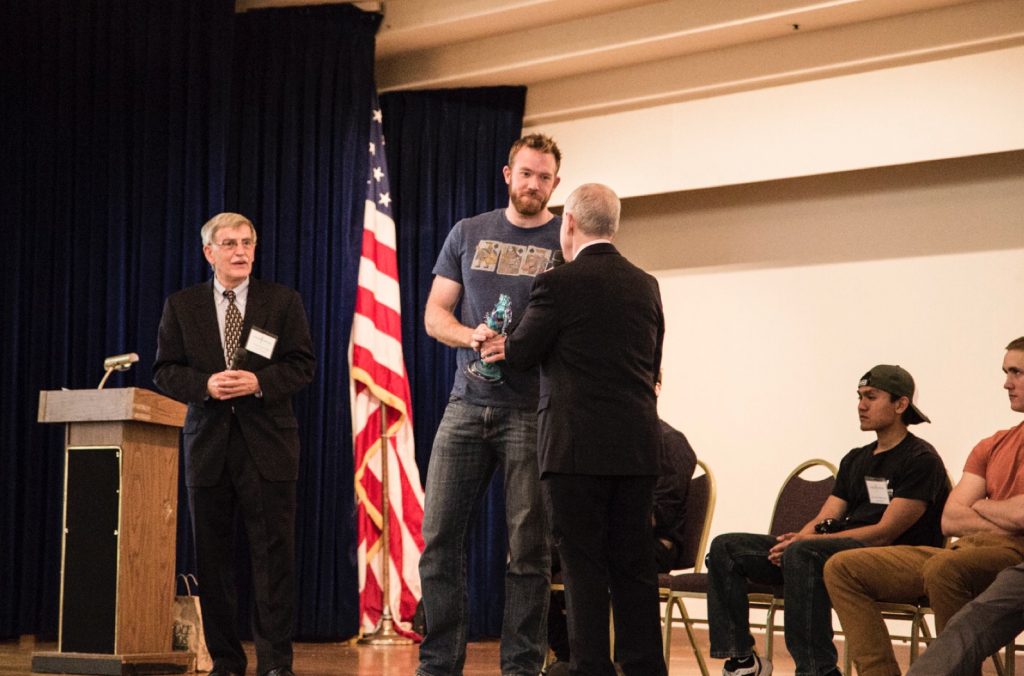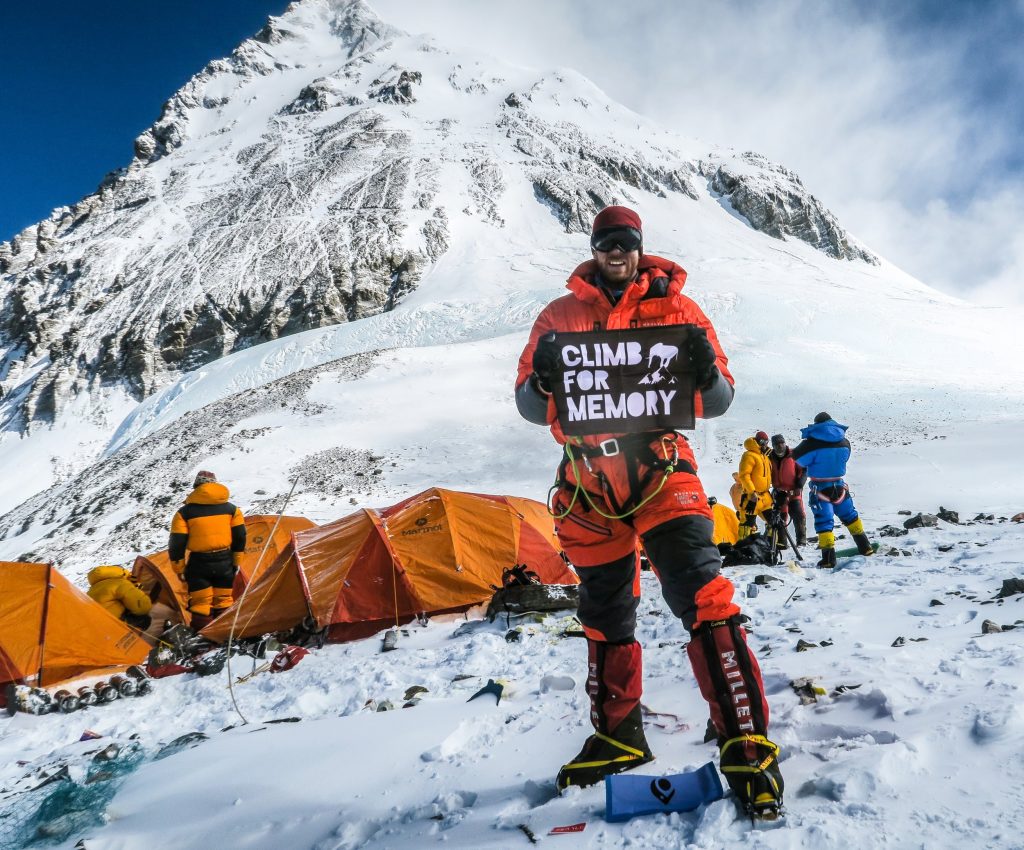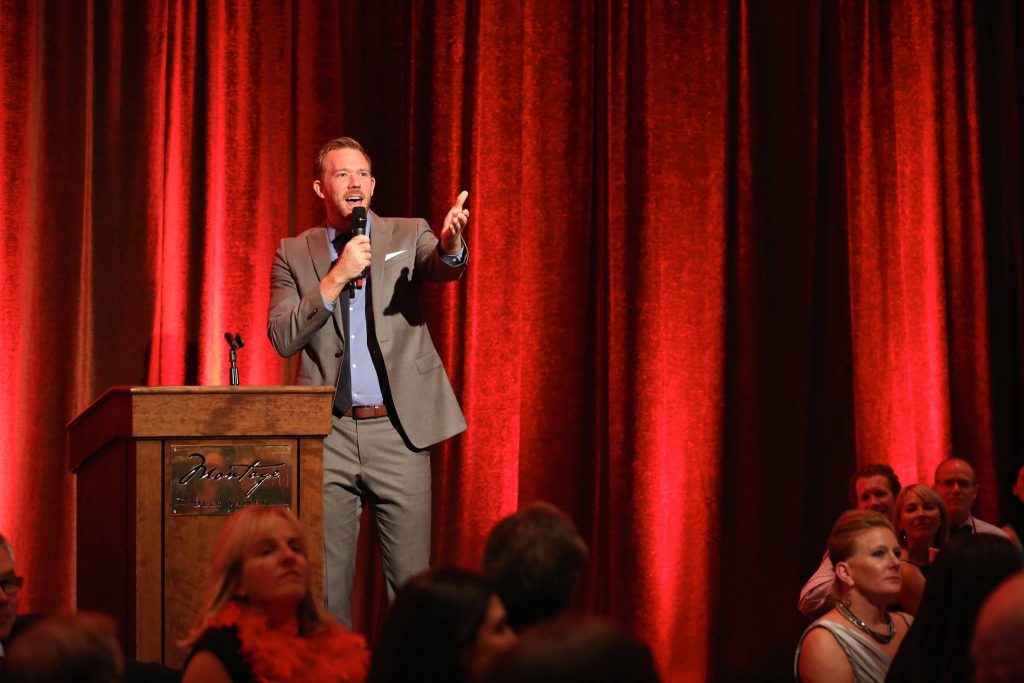
While five-time USA Memory Champion and University of Miami lecturer Nelson Dellis says he was not born with his superhuman memory, he is spending this year’s National Alzheimer’s Awareness Month preparing to set two Guinness World Records in honor of those that have lost their own.
“When my grandmother passed away from Alzheimer’s disease, I was worried for myself, and if that would happen to me when I get older,” Dellis said. “For me to show what’s possible with your memory and raise awareness for the disease and for my grandmother is a privilege,” he continued.

Dellis will attempt to break two Guinness World Records in short-term memory at 3 p.m. this Saturday, Nov. 13 at the UC pool on UM’s Coral Gables campus. The first record is for fastest time to memorize the order of a deck of cards, while the second is for most playing cards memorized underwater in a single breath.
Dellis is a UM lecturer in computer science and a two-time UM alumnus, graduating with both a bachelor’s in physics and a master’s in computer science.
Professor Geoff Sutcliffe, Dellis’ supervisor at UM, has been one of his biggest supporters in his quest for memory supremacy.
Sutcliffe met Dellis while working as a department head during Dellis’ time as a UM undergraduate. After seeing his work ethic and ability while helping him on his thesis, Sutcliffe helped Dellis secure a lecturer position.
“He really is an incredibly valuable lecturer and a motivational guy,” Sutcliffe said.
As an avid mountain climber, Dellis has made four attempts to climb Mount Everest, donating money raised from sponsors to organizations for Alzheimer’s awareness. He began his journey to the mountaintop of memory nearly 12 years ago.
“I started doing some research on brain health, improvement and techniques, and I found out about this championship, and I didn’t know that people competed in memory stuff,” Dellis continued.

He was shocked to discover that everybody that competed had trained their memory using practical techniques, rather than being born with innate abilities.
“I’d always thought memory was kind of like what you had, like a bad one or a decent one, and that was kind of it,” Dellis said. “All of these competitors were learning these techniques and practicing as if memory was like learning the piano or getting good at some skill.”
Once Dellis started practicing, his competitive side drove him to advance quickly and set him on the path to winning championships and breaking records.
With his newfound skill, Dellis started a memory business offering memory coaching and seminars and wrote two books on memory improvement: 2018’s “Remember It!” and 2020’s “Memory Superpowers.”
One area Sutcliffe says his memory has improved from working with and learning from Dellis is in name recognition.
“He taught me not to associate people with their names, but to associate someone’s features with their names, which I found to be useful in the department,” Sutcliffe said. “Maybe, a man has a big beard and his name is John. You can think ‘big-beard John.’” Sutcliffe continued.
Dellis emphasizes the importance of memory to daily life and the potential benefits of memory training.
“Memory is one of these things where everybody would do better in their lives if they could improve their memory, whether it’s their school, their job or their relationship,” Dellis said. “There’s a place for better memory everywhere.”

Dellis won four U.S.A. Memory Championships between 2011 and 2015. It took six years for him to reach the same heights again, winning his fifth title two weeks ago in Orlando. He says that while each win was special in its own way, his most recent was the sweetest.
“I’m kind of like the old guy in these championships,” Dellis said. “I’ve been doing it for so long that I thought I should’ve retired, so winning it after six years of trying was really nice.”
Although Dellis has been competing in memory competitions for years, going underwater during a memory challenge will be a new experience for him.
“In the U.S.A. Championships, you do memorize playing cards but at a table and fully clothed with air,” Dellis said. “The card memorization for me is the easy part. What’s difficult is the breath holding, since I’ve never trained to hold my breath for a long period of time,” Dellis said.
When Dellis first began learning memorization techniques, he said memorizing a deck of cards seemed impossible.
“I did it in like 20 minutes at the time and I thought, ‘Wow, I just did this whole deck of cards in my mind in that time,’” Dellis said. “That seems so slow now. Now, in the perfect setting, I can do it in 30 seconds, just because of practice.”
While his success in improving his own memory was rooted in self interest, Dellis says his mission now is to spread awareness and help people improve their own skills in memorization.
“At first I did the whole memory stuff selfishly for myself; I was interested for my own benefit, but then I realized how amazing these techniques were and how few people know about them,” Dellis said.
Dellis invites all UM students, faculty and staff to join him at 3 p.m. this Saturday to watch him attempt to make history.
“I have to warn everybody, memorizing things isn’t the most exciting thing to watch,” Dellis said. “If people understand what the record is and appreciate it for that, then I think it’s interesting to see,” Dellis continued.
If you want to learn more about Dellis, check out his website here. His books, “Memory Superpowers” and “Remember It,” are available for purchase on Amazon.





